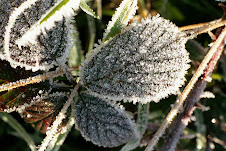Friday, 20 August 2010
Elderberry fest (Sambucus nigra)

Elderberry is a member of the honeysuckle family and has been used both as food and medicine for thousands of years. The dark berries make delicious wines, jams, and pies, but their primary value isn’t culinary. When taken throughout the cold and flu season, or even at the first sign of a viral infection, elderberries have the ability to prevent and even treat a virus.
They contain high amounts of potassium and vitamin C. These berries also have anti-viral and anti-inflammatory properties.
Back in early England, cordials were considered medicinal for their beneficial effects on the heart. In modern times, elderberry cordials and syrups are still popular as a ward against colds, or added to mixed drinks and liqueurs.
IMPORTANT:Raw elderberries containTOXINS and MUST be cooked before eating!!
History and folk remedies
Since the time of Hippocrates, elderberries have been relied on as a remedy for colds, flu, and upper-respiratory infections. In ancient Europe, elderberry trees were planted near cottages to protect the occupants from evil influences.
Today, herbalists recommend elderberry syrups and extracts for preventing and treating upper-respiratory viral infections, including coughs and bronchitis. The berries are a good source of phytonutrients and have cell-protective antioxidant properties.
How it works
Since the 1980s, Israeli virologist Madeleine Mumcuoglu, PhD, of the Hadassah-Hebrew University Medical Center in Jerusalem has studied the antiviral properties of elderberry. In laboratory research, she discovered compounds in elderberry that bind to spikes on the surface of virus cells, preventing them from puncturing cell membranes. The high concentrations of flavonoids in elderberry inhibit the action of neuraminidase, the enzyme that helps the flu virus attach to and penetrate new cells. Mumcuoglu tested Sambucol, the proprietary elderberry extract she helped develop, against various strains of influenza A and B in the laboratory and found the herb effective against all types of flu.
In 1993, a flu epidemic at an Israeli kibbutz provided the opportunity to test elderberry on patients. In people with full-blown flu symptoms, half of the subjects were given 4 tablespoons of standardized elderberry extract daily and the other half were given a placebo. Within 24 hours, 20 percent of the patients receiving elderberry showed a dramatic reduction in flu symptoms such as fever, cough, and muscle pain. Within 48 hours, 75 percent were greatly improved, and within 72 hours, 90 percent had completely recovered from the flu. In contrast, only 8 percent of those taking the placebo began to improve after 24 hours; the remaining 92 percent took six days to improve (Journal of Alternative and Complementary Medicine, 1995, vol. 1, no. 4).
In a more recent study, 60 patients age 18 to 54 suffering from the flu were given 15 ml of elderberry syrup or a placebo four times a day for five days. Those taking elderberry recovered an average of four days earlier than those given the placebo. The researchers concluded that elderberry extract offered “an efficient, safe, and cost-effective treatment for influenza” (Journal of International Medical Research, 2004, vol. 32, no. 2).
How to take it
Many elderberry products are available at natural products stores and pharmacies. Although research studies have focused on the proprietary extract mentioned above, it’s likely that other extracts of elderberry are also effective. To prevent colds and flu, take 1/2 teaspoon of liquid extract or 1 to 2 teaspoons of elderberry syrup twice daily throughout cold and flu season. If you come down with the symptoms of a cold or flu, increase your dosage to 1 teaspoon of extract or 2 teaspoons of syrup four times a day.
Side effects
No side effects are associated with the use of commercial elderberry extracts. Fresh elderberries can cause nausea in some people (drying or cooking the berries alleviates this problem). Never eat the unripe berries, roots, leaves, or stems of elderberry; they contain cyanide, which can cause elderberry toxicity.
This year i pledge to take it throughout the cold and flu season, and test the claim that elderberries have a unique ability to prevent and even stop a virus.
virus and MS...dont mix, so got to be a good one for the armory against MS.
Elderberry syrup is delicious on pancakes, and drizzled over ice cream ,and amazing with sparkling water or prosecco!!!
ELDERBERRY SYRUP
Make sure the cookware you’re using is non-reactive and your clothes are stain-friendly.
If you use an aluminum pot, it’ll get stained and the next batch of mashed potatoes you make may come out pink. Ditto for spatulas and anything else to plan to use to stir the syrup while it’s cooking.
2-pounds (1kg) elderberries woody stems removed and rinsed
4 cups (1l) water
2½ (500g) cups sugar
one nice-sized squirt of freshly-squeezed lemon juice
1. Put the elderberries in a large, non-reactive pot with the water. Bring to a boil, then reduce heat to a low boil and cook for 15-20 minutes, until tender and soft.
2. Pass through a sieve then discard the skins.
3. Pour the juice back into the pot ( you could use a finer-mesh strainer again at this point, but i dont usually bother), add sugar, and cook at a low boil over moderate heat for 15 minutes, until the syrup has thickened. Add a spritz of lemon juice. Cool completely.
4. Pour into a bottle or jar and store in the refrigerator.
Note: Some varieties of elderberries are not meant for consumption and none should be eaten raw, especially the leaves. I remove all of the hard, woody stems as well before cooking.
Storage: In the refrigerator, I’ve kept this syrup up to one year. If it shows any signs of mold, scrape it away, and bring the syrup back to a full boil again.
























